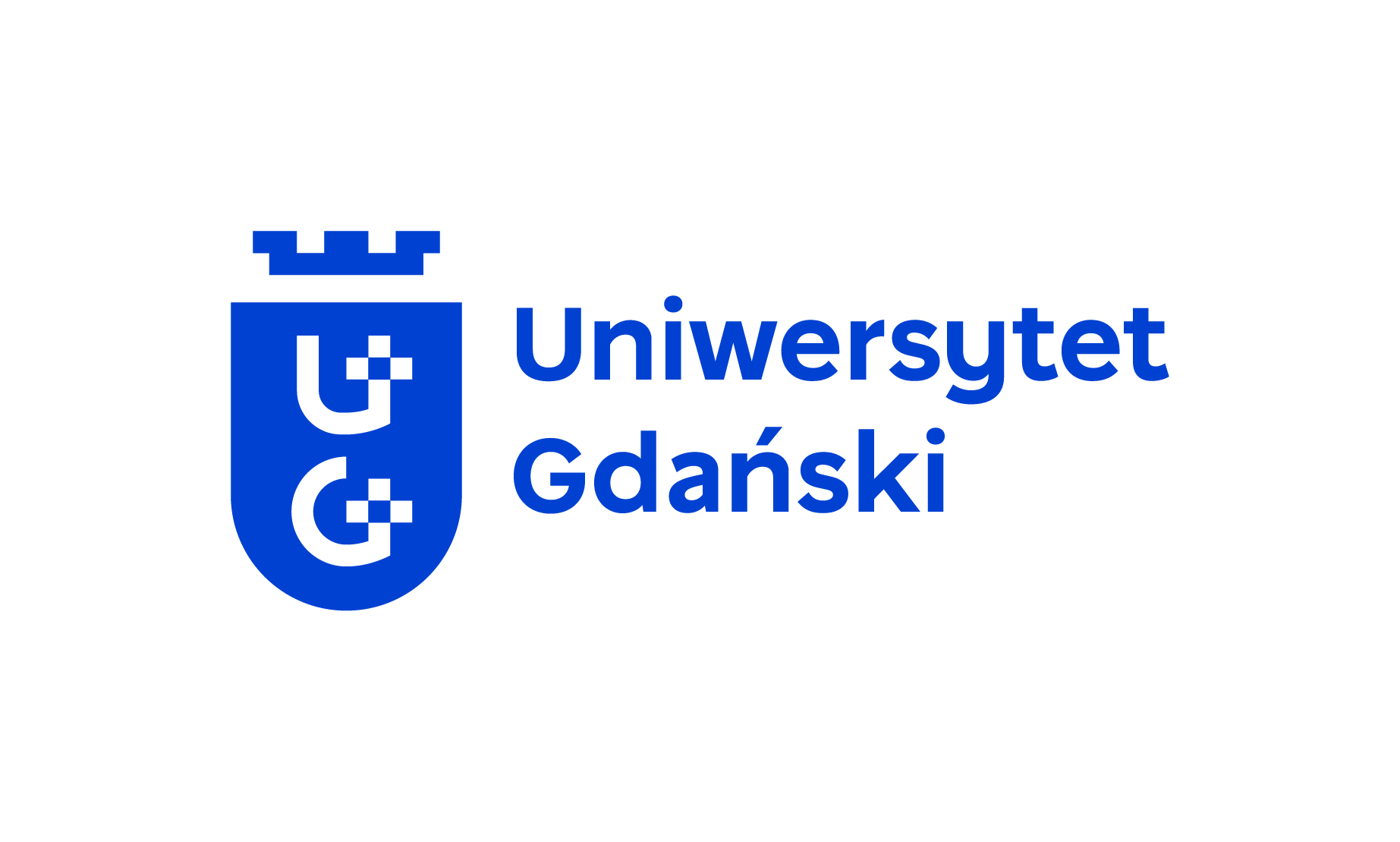
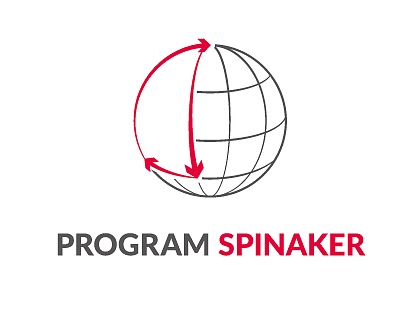
LOST IN GDANSK
Gdańsk is over a thousand years old city with a rich history. It is here that the University of Gdańsk and the Academic Center of Polish Language and Culture for Foreigners are located, which has prepared a unique offer for you.
Online classes!
Thanks to online classes you will get to know Gdańsk from every side!
We invite you to film classes, thanks to which you will watch interesting films from Gdańsk, with Gdańsk and about Gdańsk. During classes devoted to literature, you will learn local stories about our city, which are also universal stories about the human condition. Classes about Kashubian culture will introduce you to the world of old but still living traditions, customs, as well as flavors and smells.
Summer School at the University of Gdańsk!
We invite you to the Summer School of Polish Culture at the University of Gdańsk!
Summer in Gdańsk means:
- two weeks by the sea with Polish culture, Polish film, literature, art, traditions and cuisine,
- two weeks in a group of interesting people from different parts of the world,
- a great combination of study and relaxation!
Let Gdańsk enchant you!
On-line Classes
8-26 May 2023
Summer School in Gdańsk
28 July – 11 August 2023
Description of classes
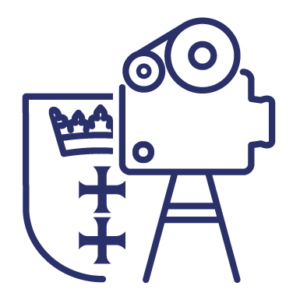
Gdańsk in film:
Gdańsk has always attracted filmmakers. In the scenery of the Old Town and on the seaside beaches, interesting images were created that have forever entered the canon of Polish cinematography.
The history of Gdańsk, which is a unique city on the map of Poland due to its colorful and complicated past, has often become the setting for film stories. Our city will forever be associated with Polish-German relations, with the beginning of World War II or the rise of Solidarity and the change of the political system in Poland.
Films with Gdańsk in the background are often very intimate, personal images. The beautiful, somewhat dreamlike scenery of the streets of Gdańsk, the endless beaches and the mysteriously roaring sea accompanied the fate of many film characters – those who were looking for love, who loved and who suffered after the loss of love.
Tricity is also an important center of Polish film life. Gdynia hosts the Polish Feature Film Festival every year – the most important event of this type in Poland. Gdynia is also the Gdynia Film School, whose walls have left many internationally recognized young artists.
During our meetings, we will show you interesting Polish films with Gdańsk in the background – films made in Gdańsk, talking about Gdańsk or being the work of Gdańsk artists. Films set in the Tri-City, concerning the culture and architecture of Gdańsk, but at the same time touching on universal topics such as multiculturalism, freedom, emigration, and the condition of modern man. You will see the works of well-known directors, but you will also meet new artists who are only at the beginning of their artistic path. You will watch films whose heroes became participants in great historical events, but you will also see pictures telling simple, intimate, quiet stories about ordinary people.
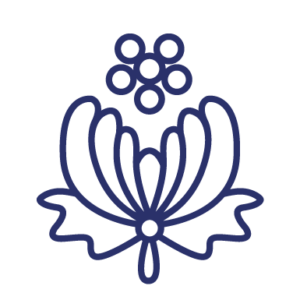
Kashubian culture:
We will tell you about the culture of our region, little known in the world!
Kashubia is an extraordinary region with a rich history. These are unique traditions that, although they were born a long time ago, are still present in the life of the local community.
During the classes we will talk about the Kashubian language, Kashubian cuisine and the art of our region.
During the Summer School you will take part in dance, theater and culinary workshops. We will take you on a trip to Kashubia so that you can admire the beautiful nature of the Tri-City and its surroundings and learn about the unique traditions and history of the place where we live (castles, museums!).
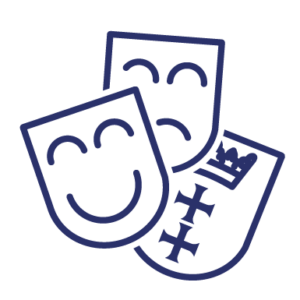
Literature and art:
Literary and artistic Gdańsk.
You will learn literature and art related to Gdańsk.
You will have the opportunity to read literary texts and look at works of art from the perspective of questions bothering us in today’s everyday life. Immerse yourself with us in literature and art from a glocal perspective. Let’s consider together whether literature and art respond to global challenges, and how they address the issues of building resilience and well-being.
– What is the prescription of Wisława Szymborska’s surrealist and skeptical poetry for the problem of the culture of hustle and bustle?
– Can we find tips on how to live mindfully and achieve well-being in our lives in the works of Czesław Miłosz, especially those inspired by Buddhist thought?
– Can the digital art of the Anthropocene era realized in Gdańsk as part of the Studiotopia project be used for meditation and building resilience?
– Will we find in the letters of Zbigniew Herbert and Henryk Elzenberg tips on how to build master-apprentice relationships?
During the Summer School, you will be able to go on a literary walk around the districts of Gdańsk and Sopot, we will look for traces of literary heroes from books by Gunter Grass, Paweł Huelle, and Stefan Chwin. We will visit the Emigration Museum in Gdynia and learn about the long, exciting and often terribly difficult journeys of Poles to other countries – in search of political asylum or a better life. We will go to the European Solidarity Center to learn about the history and achievements of this unique social movement. We will learn about contemporary art created in the Tri-City thanks to the exhibition of the New Museum of Art NOMUS and we will visit artistic Gdańsk along the paths of murals and contemporary sculpture.
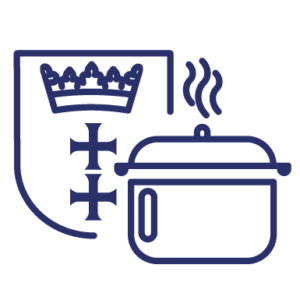
Culinary culture of Pomerania:
In the culinary part of the course, we will delve into the history and traditions related to the cuisine of Pomerania. In our story, we’ll enter a world of extremes, where the extravagance of Gdansk feasts, during which drinks with real gold flakes were poured, mixes with simple Kashubian meals, where herring plays one of the main roles. We’ll be feasting in Teutonic castles and bourgeois salons, together with the Gdansk’s troubelmakers called bowke we will go to the taverns filled with laughter, and with the fishmongers from the Fish Market, we’ll be eating mustard soup.
During the Summer School we will part in a culinary walk tracing the tastiest morsels of old and modern Pomerania. We will learn, among others:
- what ritual accompanied the drinking of the favorite beverage of the Gdańsk troublemakers known as bowke, and what was the punishment for breaking it;
- what dishes and medicinal broths were served to the sick;
- what plates were used by wealthy burghers in the 18th century;
- which famous astronomer was involved in brewing beer in Gdańsk;
- what is still eaten during visits to grandmothers in Kashubia;
- what deer antlers were used for in the kitchen;
- who came up with the famous beverage with real gold flakes.
And most importantly: we will visit local restaurants where we will indulge in traditional dishes while sipping on excellent drinks.
Schedules
Online course (8 – 26 May)
| Date of classes | Online classes (16:00-17:30, CET) | e-learning (12 h) |
|---|---|---|
| May 8 | Film | Film – 3 h
Literature and art – 1 h |
| May 9 | – | |
| May 10 | Culinary culture of Pomerania | |
| May 11 | – | |
| May 12 | Literature and art | |
| May 15 | Film | Film – 3 h
Literature and art – 2 h |
| May 16 | – | |
| May 17 | Literature and art | |
| May 18 | – | |
| May 19 | Kashubian culture | |
| May 22 | Film | Literature and art – 3 h |
| May 23 | – | |
| May 24 | Literature and art | |
| May 25 | – | |
| May 26 | Literature and art |
Summer school (28 July – 11 August)
| Date of classes | Stationary classes (60h) | Online classes (2h) |
|---|---|---|
| July 28 | – | Literature and art / history |
| July 31 | Film / Gdańsk of fiction (lecture, show) | |
| August 1 | Culinary culture of Pomerania (culinary walk) | |
| August 2 | Literature and art (lecture, museum walk: NOMUS, ECS, Museum of WW 2) | |
| August 3 | Kashubian culture (excursion 9 AM – 4 PM) | |
| August 4 | Literature and art (lectures, literary walk) | |
| August 7 | Film (lecture, show, museum walk – Museum of migration) | |
| August 8 | Literature and art (workshop with JANTAR University of Gdańsk Song and Dance Ensemble) | |
| August 9 | Kashubian culture (workshop) | |
| August 10 | Literature and art (lectures, literary walk) | |
| August 11 | Literature and art (lectures, literary walk) |
Enrolment
Online course (8 – 26 May)
Enrolment schedule
Terms of participant enrolment
Summer school (28 July – 11 August)
Enrolment schedule
Terms of participant enrollment
Terms of scholarship award and payment
Statute
Documents to download
Our team
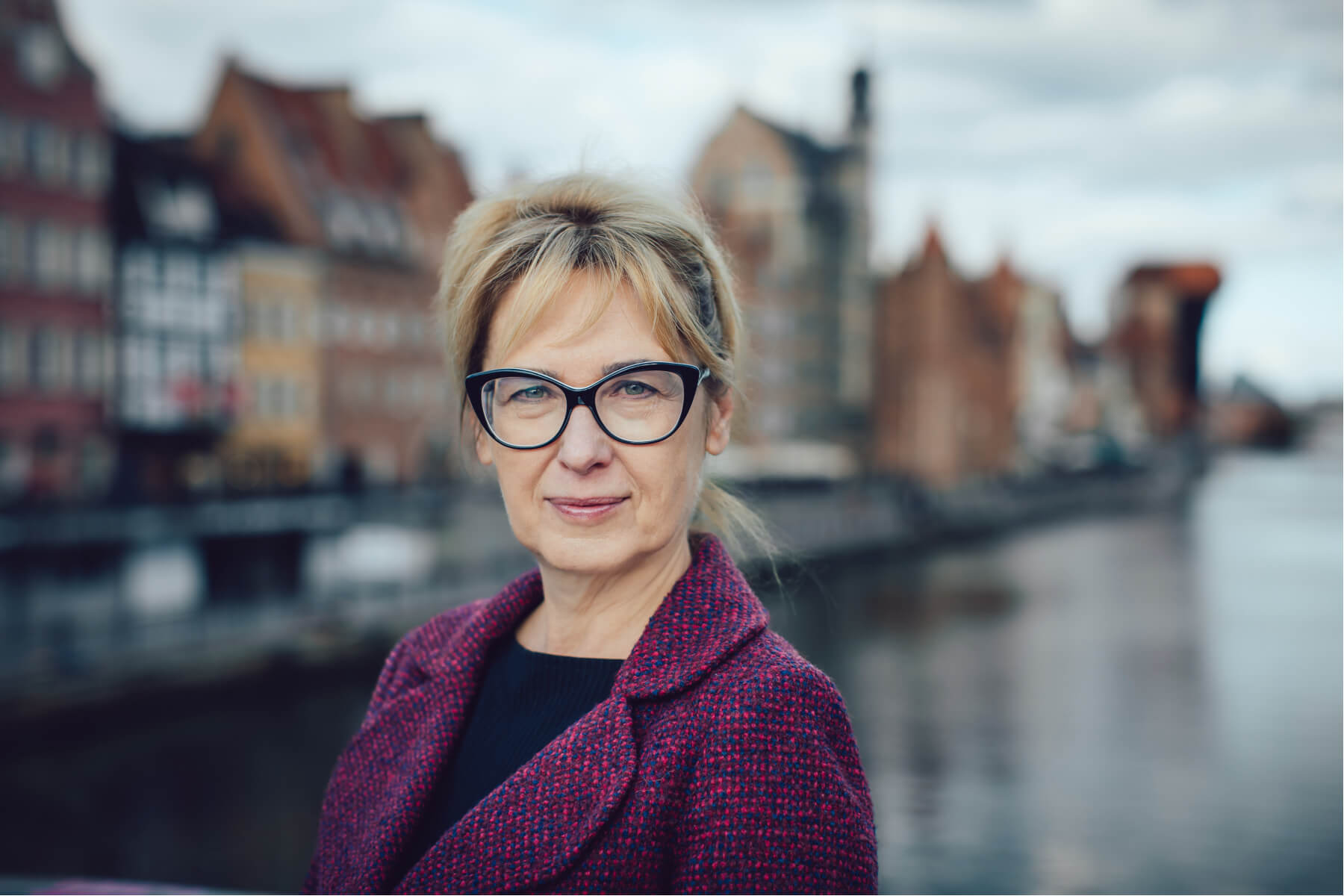
Prof. Ewa Czaplewska, Ph.D. of the University of Gdańsk
An associate professor at the Institute of Speech Therapy at the University of Gdańsk; psychologist, speech therapist, psycholinguist, specialist in supporting the development of bilingual people and those raised in multilingual environments. Author of numerous publications in the field of interculturality, pragmatics, as well as intercultural speech therapy; also a co-editor of the series of speech therapy textbooks “Speech therapy of the 21st century” (PL- Logopedia XXI wieku). Scientific editor of “Intercultural Speech Therapy” (PL- Logopediamiędzykulturowa). Representative of Poland, member of the Management Committee in an international project – Cost Action IS1406 – Enhancing children’s oral language skills across Europe and beyond: a collaboration focusing on interventions for children with difficulties learning their first language.
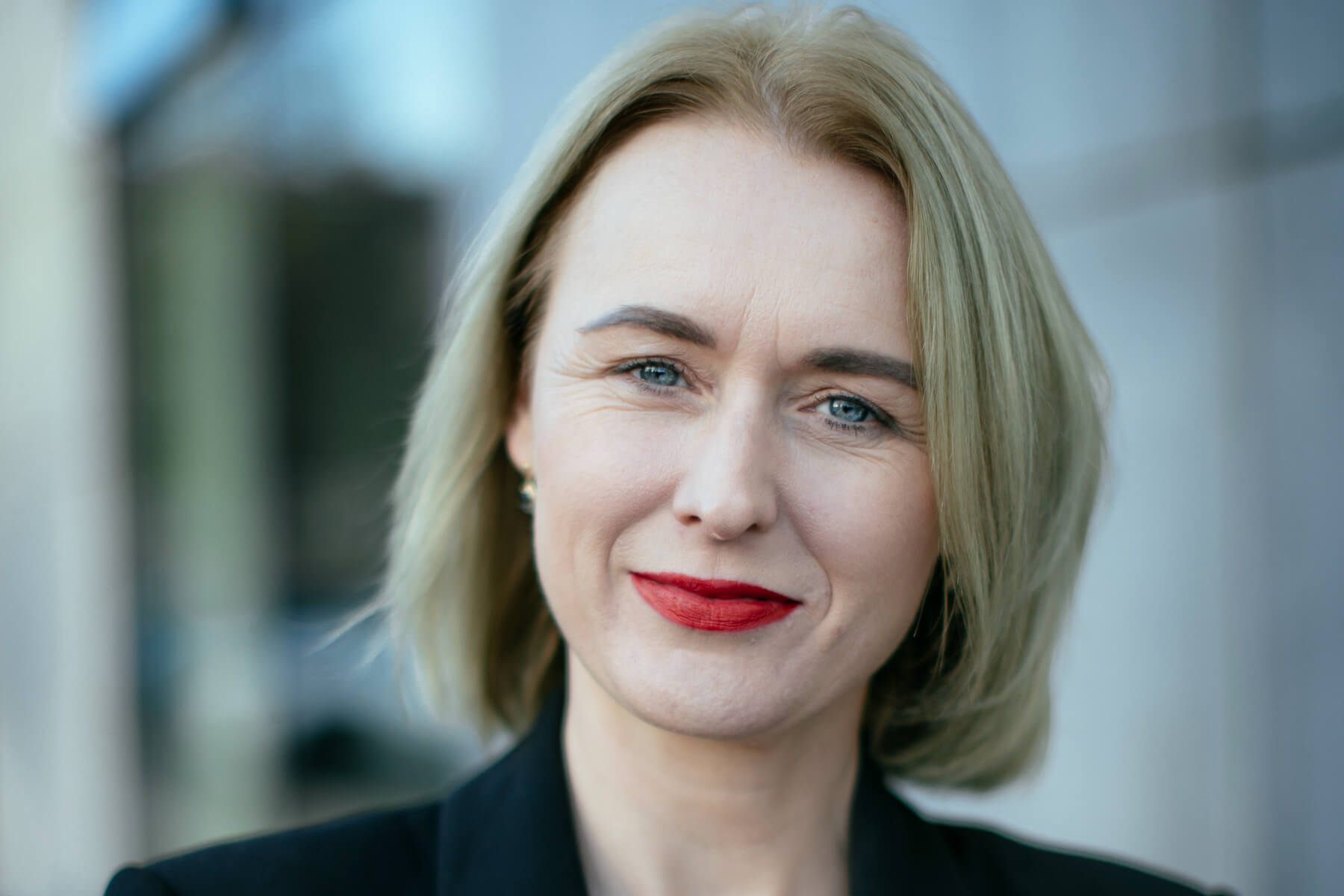
Prof. Sylwia Mrozowska, Ph.D. of the University of Gdańsk
Professor at the University of Gdańsk, political scientist, Vice-Rector for Cooperation and Development, editor-in-chief of the European Policy Research Association Publishing House, member of the Scientific Council of the Institute for Socio-economic Research; manager, coordinator and executor of scientific projects and development works, including MNiSW, NCBiR, H2020, Interreg South Baltic, Jean Monnet Programme, EFS POKL, Europe for Citizens, Youth in Action, Development of Polish Universities, Scholarship and Training Fund, Visegrad Grants; expert evaluating projects in the programs: Horizon 2020, NAWA, Scientific Fund of Serbia, ROP; reviewer in several scientific journals; expert of the Polish Ecological Club; member of Team Europe Poland, scholarship holder of the Konrad Adenauer Foundation, NAWA; member of the PLATENSO research network; academic tutor; member of working groups: social education, development of staff and education system in the Ministry of Climate and Environment.
Research interests:
social and political conditions for energy technology development, development strategy, lobbying, civic participation
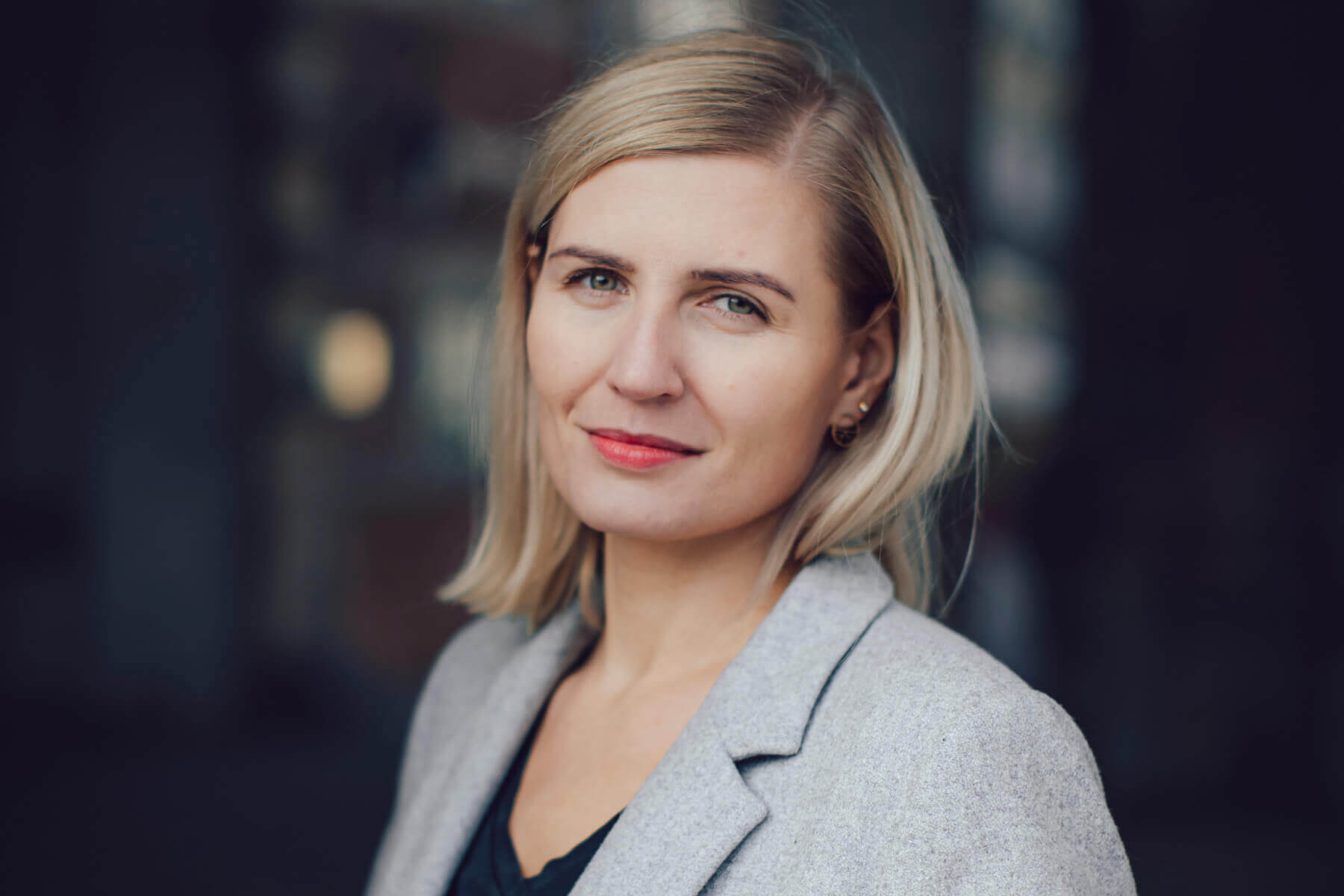
Dr Irena Chawrilska
Doctor of Humanities in the field of literature, director of the Academic Centre of Polish Language and Culture at the University of Gdańsk, assistant professor at the Department of Applied Polish Studies at the Institute of Polish Philology, lecturer of Polish as a foreign language, teacher of the Polish language, philosophy and ethics, academic tutor, editor, secretary and member of the editorial board of the “Language-School-Religion” magazine (2013–2018), examiner authorised to act as the commission chair during State certification examinations in Polish as a foreign language, member of the Schulz Studio at the University of Gdańsk, member of the Bristol Association of Polish and Foreign Teachers of Polish Culture and Polish as a Foreign Language, author of publications in the field of Polish-language glottodidactics, interdisciplinary comparative literature and aesthetics.
Research interests:
literature and art in teaching Polish as a foreign language, migration experience in the educational process, SDG literature and art, transmedia and intermedia aesthetics, the phenomenon of hybridity in culture, experimental literature, worldwide reception of Bruno Schulz’s work.
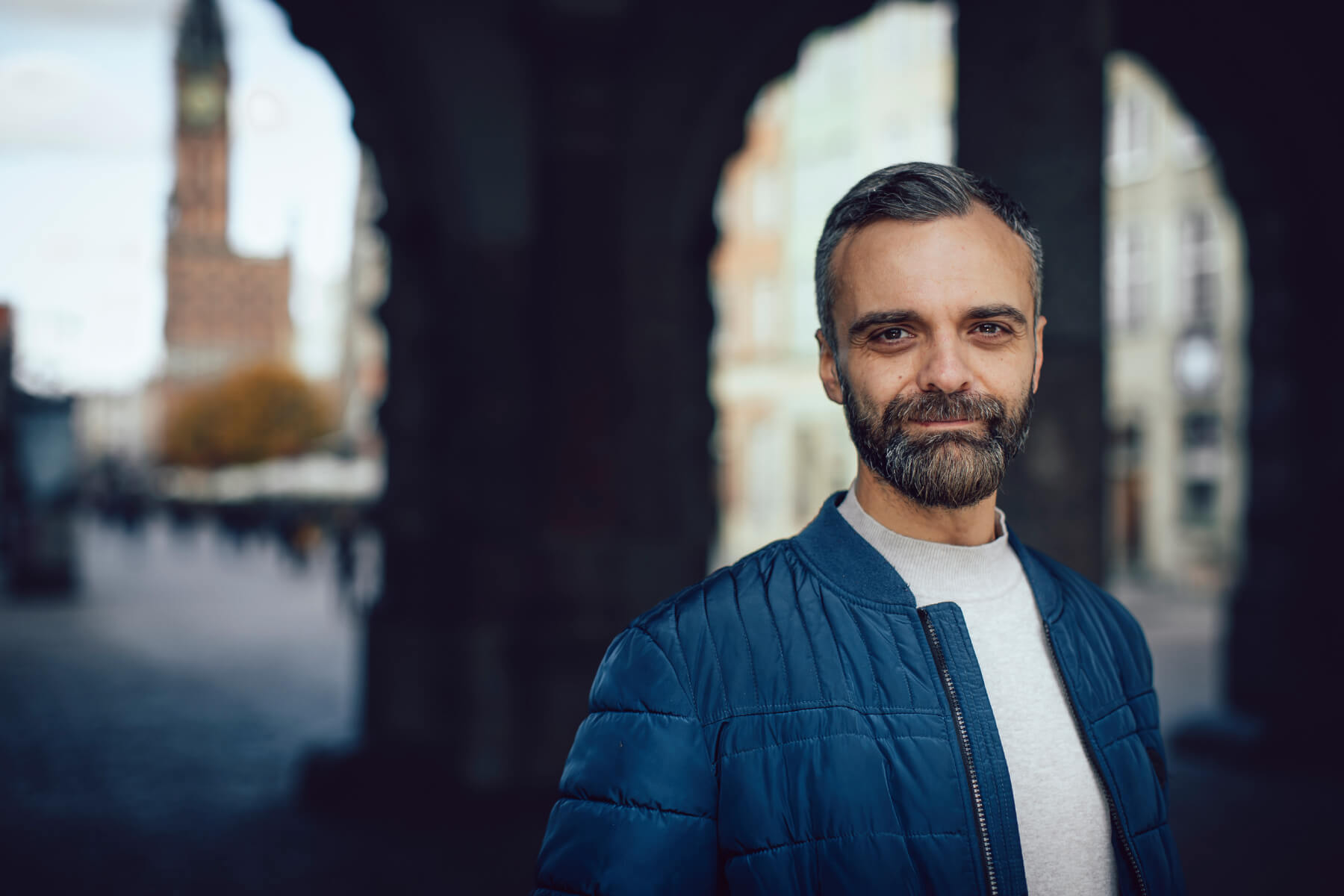
Dr Michał Pruszak
Doctor of humanities in the field of literary studies. Philologist, film connoisseur, didactician. Author of publications in the field of children’s film and literature and intersemiotic translations of cultural texts (literature-theatre-film). Teacher of Polish as a foreign language. Examiner during certification examinations in Polish as a foreign language (with qualifications to act as commission chair). Employee of the Academic Centre of Polish Language and Culture at the University of Gdańsk. He has been in continuous cooperation with the New Horizons of Film Education Foundation (PL – Fundacja Nowe Horyzonty Edukacji Filmowej) and the Gdańsk Shakespeare Theatre.
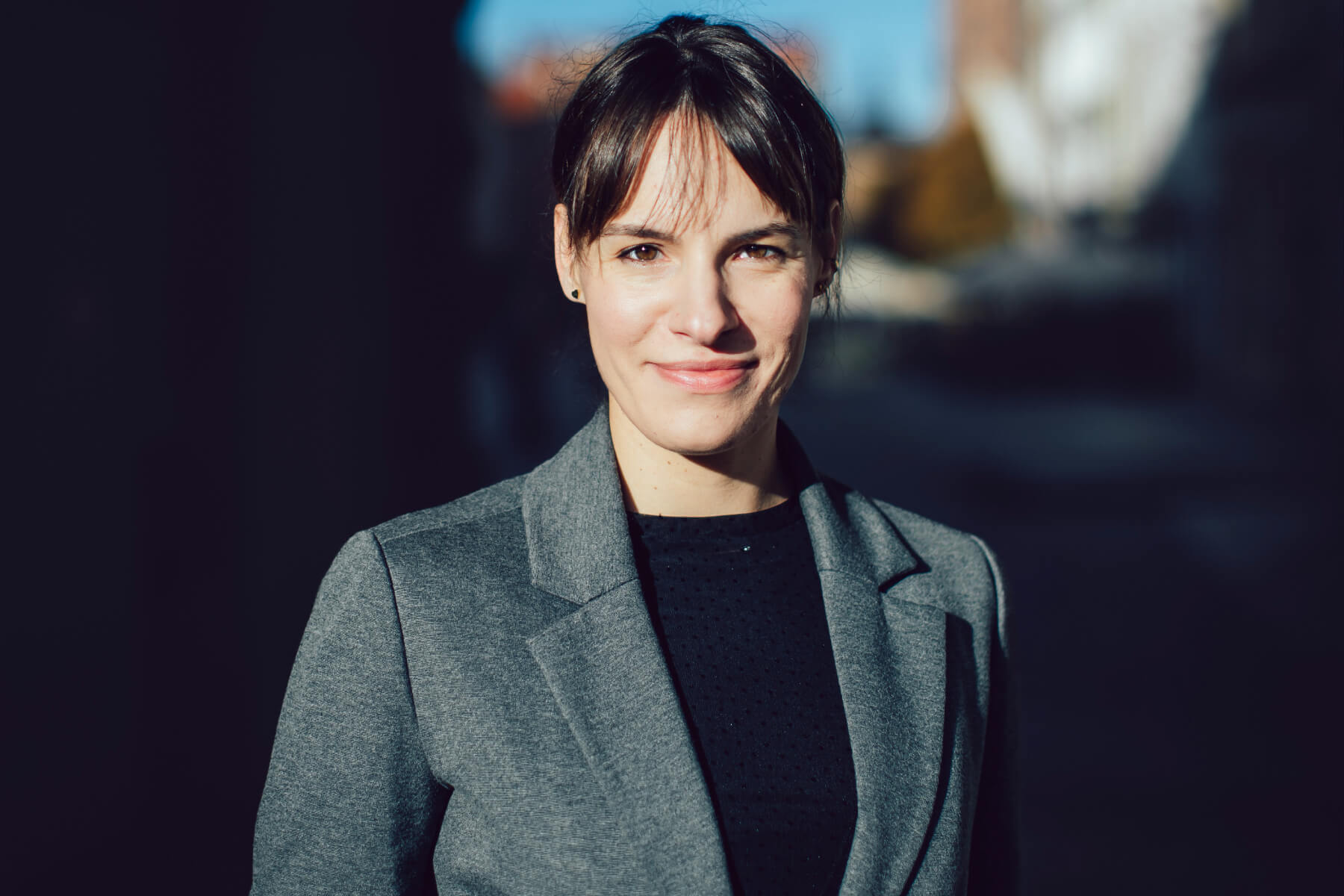
Dr Martyna Wielewska-Baka
Philologist, didactic enthusiast, academic tutor, Gdańsk native and now resident of Gdynia. She introduces Polish and Erasmus students to Polish literature and culture in the Cultural Communication major. Author of a monograph devoted to the relationship between humanities and the sciences. Her academic interests also revolve around the social, political and cultural aspects of the Israeli-Palestinian conflict.
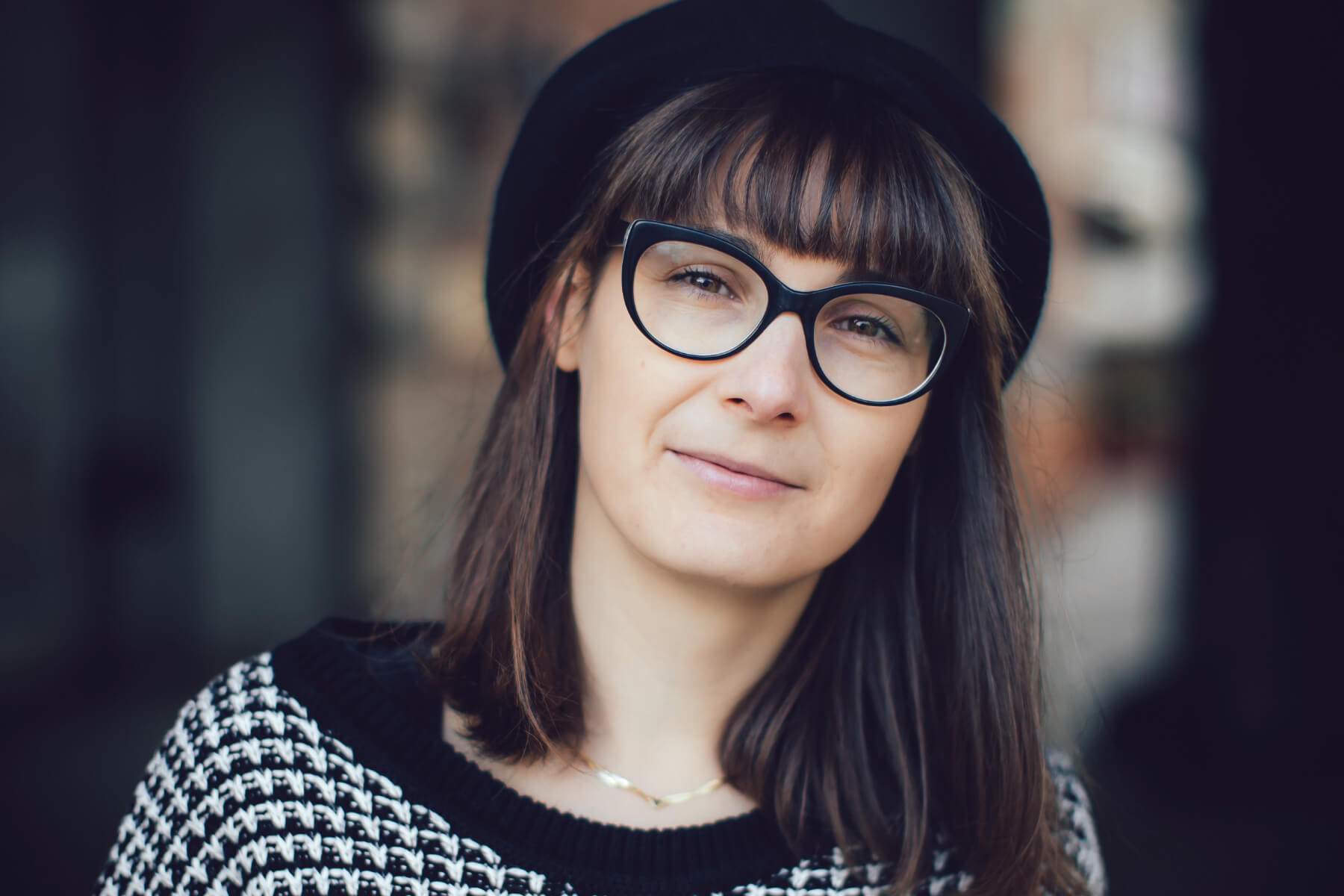
Sonia Czaplewska, MA
Gdansk resident for generations, enthusiast of everything culinary. By education, a philologist, Japanologist, teacher of Polish as a foreigner, and dietitian. She is a Japanese government scholarship holder, who teaches at the Jagiellonian University and cooperates with the University of Gdańsk and Tokyo University of Foreign Studies. As part of her postgraduate course in Food Studies, she devoted one of her diploma theses to the culinary culture of Gdańsk, developing a culinary and historical mini-guide.
